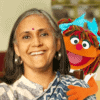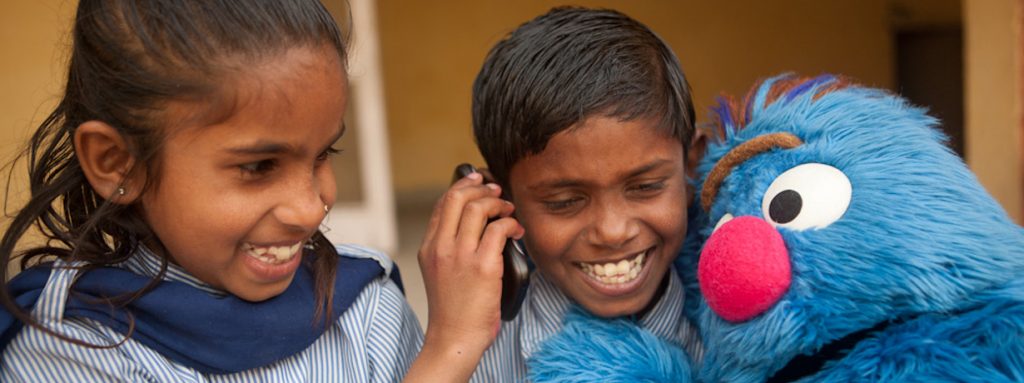5 min read
With schools across the globe closing, the COVID-19 health emergency has brought unprecedented change and uncertainty to 1.5 billion learners in 165 countries[1]. Students are learning to adapt to the online educational opportunities that government and schools are hurrying to deliver to meet the challenge. For millions of young children at the pre-primary level, however, sources of safety and comfort – found in the familiar routine and structure provided by planned activities at school – are now dramatically altered.
At 472 million, India has the largest population of children in the world. The pandemic has affected all of them, but some more deeply than others, including 40 million children[2] from extremely poor families. These children are disproportionately hurt as they rely on schools for a range of social services, including health and nutrition. With no learning opportunities, no parental capacity to facilitate learning, and no coping mechanisms to meet their socio-emotional needs, the risk to these children has multiplied overnight.
Without intervention, the learning gap for the youngest of these children is likely to widen, increasing the dropout rate and deepening the learning deficit that India is trying to overcome.
Today, as governments, corporates and non-profits make a colossal effort towards immediate relief work in healthcare and nutrition needs, we must also find ways to deliver early education, health and nutrition when children need them most. This is a strident call for everyone to take notice and respond as quickly as possible.
At Sesame Workshop, we are mobilising our tools and resources to bridge the gap for children and caregivers. Here are a few sign-posts we have identified to help navigate the new terrain we are walking through together.
Start with empathy
Socio-emotional needs are as important as physical needs right now. In low-resource communities, we are seeing pain of unprecedented magnitude. For some families, recovery will be slow; For others, they may not recover at all. Young children, therefore, need a sense of security to carry the scars of their parents’ anxieties and hardships. Our responses must spring from a space of empathy and kindness.
To address these needs, we initiated the Caring for Each Other response to provide caregivers and children with tools to manage anxiety and help create routines that fostering playful learning at home while staying physically and mentally healthy.
Collaborate
More so than ever before, this is the hour to work together. The government must prioritise access to critical services such as healthcare, nutrition, food security, mental health and psychosocial support, social protection, and monetary support to mitigate the immediate and long-term consequences of the pandemic.
The enormity of this task necessitates collaboration between governments, corporates and civil society so that we reach every last child and adult who are marginalised by geographies and languages. For Sesame Workshop India, we are partnering with UNICEF to distribute educational material to 17 states. Other partners bring in digital capabilities, strengthening the efficacy of the combined response.
Think long term
While we double our energies to meet immediate needs, we must begin building the foundations for a post-COVID world. Social distancing and rules against large-scale public gatherings may be here to stay for a while. What does this portend for learning and for play? How will parents strike a balance between work and child-raising? What will the new normal look like for children of migrant populations, for instance, and how do we leave that less to chance? We need to start imagining and designing programs and systems to safeguard children’s physical and cognitive development and their socio-emotional wellbeing in an ever more vulnerable world.
Rethink reach
The current scenario requires us to redefine our audiences and how we reach them. Not only do more children have unmet needs, but more parents are also involved in their children’s learning.
As it is not viable to engage children and parents across varying socio-economic groups in the same way, the way we facilitate learning will also need to diversify. At the bottom of the pyramid, this could mean expanding the ECCE audience to include caregivers. It also means increasing parental capacity to facilitate play-based learning with everyday materials while going about necessary chores. The best practices in play-based learning and evidence from these programs can help us build these bridges.
Be nimble
COVID-19 has sparked an impetus for us to design intervention programs that can traverse platforms and geographies with ease. At Sesame Workshop India, this means repurposing existing communication and rolling this out to communities over multiple channels. This was hugely successful as we saw viewership grow by 147%.
At the same time, it made us aware that beyond the work that we do, there is an absence of child-sensitive, age-appropriate content that address young children’s questions and anxieties around the coronavirus. We are redoubling our efforts to leverage television and radio channels to offer responses at scale.
Carry the donor along
The heartening side of the pandemic is the way in which people have banded together to contribute finances, time, skills and networks. In the months to come, donors, and especially individual donors, who are motivated to help, may find themselves at sea in an environment that has turned digital. Donor education on the power of media and its ability to bring value and enrich people’s lives in meaningful, measurable ways will be essential. Communication may hold the key to letting more people participate in the building of a brave, new world.
As nature forces human action to a pause, it may well be giving us the biggest opportunity to create this world for our children, one that frees us from outdated structures and lets us reimagine and build with a new clarity of intent.
[1] https://en.unesco.org/news/unesco-rallies-international-organizations-civil-society-and-private-sector-partners-broad
[2] https://www.bbc.com/news/world-asia-india-52210888


















